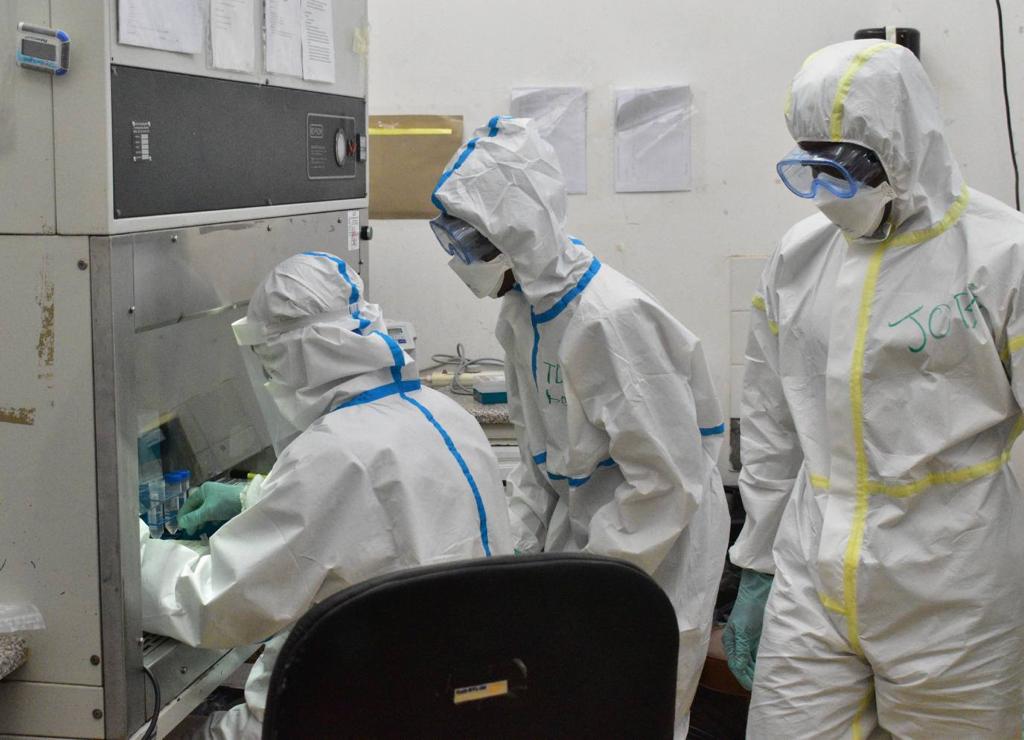Officials from the Ministry of Health and Child Care have admitted that the unavailability of cartridges for the GeneXpert machines has affected the testing of Covid-19 samples, as the kits had to be imported.
Previously, the GeneXpert machines were used to test for Tuberculosis (TB) and with proper cartridges can be used to test for Covid-19.
The government hopes through using the GeneXpert machines, which are available in the country’s 64 districts, testing of Covid-19 can be scaled up nationally.
“The issue is the cartridges, I think this is what delayed us in terms viewing of the tests, because these were unavailable but of course as a country we have made orders and these are coming through. I have been made to understand that yes, we have received quite number of cartridges,” said Dr Owen Mugurungi, Director of the AIDS and TB unit in the Ministry of Health and Child Care in an interview with CITE.
However, Dr Mugurungi was not in a position to say how many cartridges were delivered.
“But currently we should be doing both GeneXpert and PCR (polymerase chain reaction method) testing and doing the other tests done at central laboratories as well as the rapid diagnostic test,” he said.
Dr Mugurungi explained that GeneXpert machines use gene sequencing to search for specific genes of a disease, virus or bacteria.
“The machine was developed to look for the gene sequencing of TB but the machine itself is so robust that when you put in primers or kits inside, which is some kind of software, it can actually detect STIs such as gonorrhoea, syphilis and chlamydia. The GeneXpert can also detect for TB and HIV. It’s a robust technology that you can use but what is critical is when you put the kit, the polymers inside the machine, it is ready to detect for diseases,” he said.
Dr Mugurungi said it was possible to scale up Covid-19 testing since the GeneXpert machines were decentralised to be available in all the districts of Zimbabwe.
“The machine also tests viral loads of those on HIV treatment, STIs and now currently the GeneXpert is used for Covid-19. The issue is after you have run Covid-19 tests, just clean it then put it polymers for TB then run TB. Same thing when done with TB testing and want to switch to Covid-19.”
Dr Mugurungi said generally a GeneXpert machine found in a district could run four tests on a single shift.
“Others can do four, eight, or 16 tests depending on which platform you are using. The smallest can do four and probably in a day, it can do testing three times so its 12 tests. The biggest machine can do 16 tests so if done three times a day it is 48.
“The numbers may seem small but ideal for a decentralised system, as if you have a GeneXpert machine in Nkulumane, certainly I will tell you that you would not have more than 10 suspects of Covid-19 coming in per day. But in areas where you collect more samples and have bigger things to look at then these are the samples are sent to the bigger institution run on Roche machine or Abort machines which have capacity to do 100 per day,” he said.
Since the outbreak of the Covid-19 pandemic in March, testing was conducted in Harare at the National Microbiology Reference Laboratory at the Sally Mugabe Hospital.
In Bulawayo, Covid-19 testing started in April at the National Tuberculosis Reference Laboratory at Mpilo Central Hospital.
Reports say early last month, three private laboratories: Premier Service Medical Investments, Lancet Laboratories and Cimas Medical Laboratories were approved by the Ministry of Health and Child Care to start Covid-19 testing in Bulawayo.

